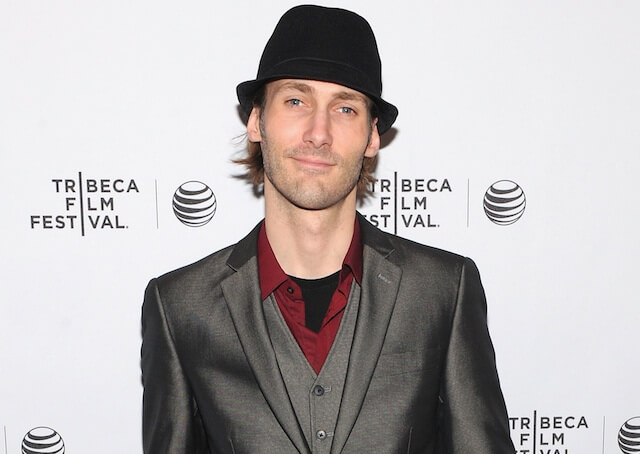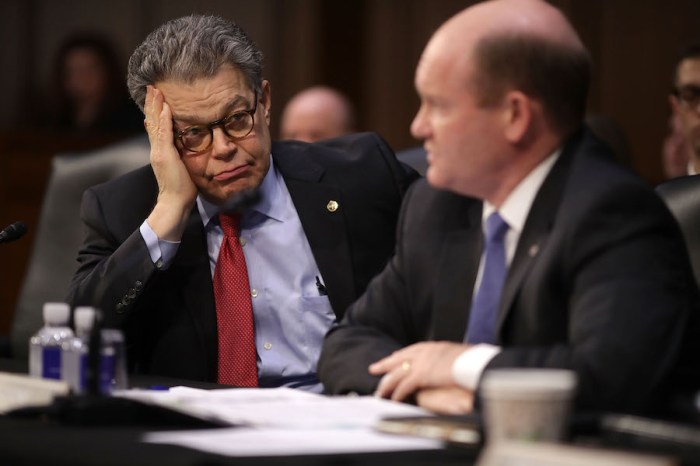The new documentary “Point and Shoot” tells a crazy story, about a Baltimore guy, Matthew VanDyke, who goes to Africa to make a film about riding around on his motorcycle — only to wind up fighting in the Libya Civil War. But the story, though sometimes amusing, is dead serious. After he was done in Libya, VanDyke got involved in the Syrian Civil War, which he documented in the award-winning short film “Not Anymore: A Story of Revolution.” And in December he’s going back to the Middle East to get involved in the fight against ISIS. Understandably, the motorcycle documentary, which he still wants to one day make, will have to wait. But for now he’s talking about “Point and Shoot,” made from footage he shot before and during the war (although an animated segment had to be made for when he wound up in prison, which made international news). VanDyke didn’t direct it himself; that task went to Marshall Curry, of the Cory Booker campaign saga “Street Fight.” Why didn’t he do it himself? “A lot of it was time constraints,” VanDyke reveals. He was off in Syria and working on that film. “I couldn’t have possibly done a feature-length doc myself.” He said he also worried about credibility. “I’m usually pretty good at being self-critical. But other people wouldn’t believe that. It was good to have a step back. I didn’t want the combat footage to be regarded as some kind of campaign commercial.” He chose Curry, he states bluntly, because his films had twice been nominated for Oscars. “I looked for filmmakers who’d been nominated for Academy Awards in recent years,” he recalls. “Marshall was available.” The two worked together as collaborators. “Some battles I won, some battles Marshall won.” But apart from interviews with VanDyke and archival footage, what’s onscreen is his. Watching “Point and Shoot” you can see him evolve from an amateur to someone who can get clean shots in the midst of battle. “I definitely got better,” VanDyke says. “I went from that guy whose camera was falling over on the tripod to having people pay for my footage — having my Syria footage included in other documentaries.” Becoming a war videographer wasn’t the plan. “It’s not something I set out to do. It sort of developed,” he says. Then again, that’s not unusual. “It’s how everybody gets started in conflict filming and conflict reporting. Very few have training in journalism. They’re the ones who have the guts to go over and do it. Whoever is willing to be there can do it. It’s a real level playing field. “Not that everyone can do it well,” he adds.
But how does one get good at filming inside wars? VanDyke says he had to learn not be nervous in conflict zones. What helped, if you will, was living rough. He was arrested 20 times in Iraq; one time he was hooded, beaten and accused of being al Qaeda. “That built up a tolerance where I didn’t have a nervous hand while filming,” he says. Things have been less tumultuous for VanDyke since then. His jail time was that it resulted in his parents, who separated when he was 2 years old, reuniting after 30 years. (“That’s the Hollywood ending,” he says.) And he’s still with Lauren, his longtime girlfriend, who’s struggled with his absence while worrying about his safety — though he has to endure everyone asking him how she put up with him. He also says there is talk from Hollywood. “But that’s not something I’m focused on right now,” he says. That’s because he’s due back in the Middle East. “I’m taking everything I’ve learned over the years and applying it to the fight against ISIS,” he explains. He won’t be filming it, but he also won’t be on the front lines. Instead he’ll be doing a variety of things, including advising — although he says he isn’t above getting up front too if need be. VanDyke worries that making films doesn’t have enough of an effect. “I’m someone who rarely believes the pen is mightier than the sword,” he says. “I made the Syrian film so it would have a tangible effect on the ground. It did have a tangible effect, but not enough of one. I’m getting back into more direct action on the ground from now on. There are things I can do that are more effective for the cause.” Not that movies have no effect. “Everyone who sees ‘Point and Shoot’ will come away with a better view of Libya and the revolution. That’s a great thing, but when it comes to winning conflicts, the media attention hasn’t helped. It hasn’t led to international intervention,” VanDyke explains. “It led to good things. It led to people giving money to humanitarian causes. It led to sanctions. But at the end of the day, you have to kill that guy to win a conflict. You have to have boots on the ground, you need to take territory; if some authoritarian doesn’t want to give up power, you need to throw them out. And if that’s the mission I’m focused on, and the camera’s not doing it, I’m going to go back for the gun.”
Interview: ‘Point and Shoot’ subject Matthew VanDyke on being a war filmmaker and a fighter

Getty Images
Follow Matt Prigge on Twitter@mattprigge
























